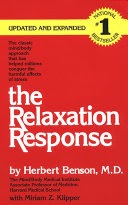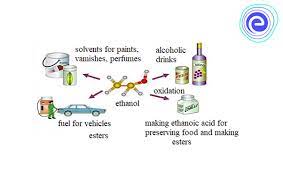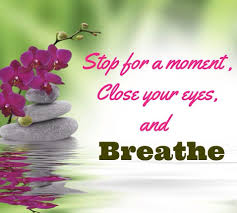The Relaxation Response: Understanding and Harnessing Its Power
In our fast-paced and often stressful world, the concept of the relaxation response has gained significant attention as a powerful tool for promoting overall well-being and reducing the negative effects of stress on our bodies and minds.
The relaxation response is a state of deep rest that can be elicited through various techniques such as meditation, deep breathing, progressive muscle relaxation, or visualization. When activated, the relaxation response triggers a cascade of physiological changes in the body that counteract the stress response, promoting relaxation and inner calm.
Research has shown that regularly practicing techniques to induce the relaxation response can have numerous benefits for both physical and mental health. These benefits may include reduced blood pressure, improved immune function, decreased muscle tension, better sleep quality, and enhanced cognitive function.
One of the key components of harnessing the power of the relaxation response is learning to let go of tension and stress by focusing on the present moment and cultivating a sense of mindfulness. By incorporating relaxation techniques into our daily routine, we can train our bodies and minds to respond more effectively to stressors and challenges.
Whether it’s taking a few minutes each day to practice deep breathing exercises or dedicating time for meditation or yoga, finding ways to activate the relaxation response can have profound effects on our overall well-being. By prioritizing self-care and incorporating relaxation practices into our lives, we can cultivate resilience, reduce anxiety, and improve our quality of life.
So next time you feel overwhelmed or stressed out, remember the power of the relaxation response. Take a moment to breathe deeply, focus on the present moment, and allow yourself to experience a sense of calm and peace. Your body and mind will thank you for it.
8 Effective Tips to Activate Your Relaxation Response
- Practice deep breathing exercises
- Engage in mindfulness meditation
- Take short breaks throughout the day to relax and recharge
- Listen to calming music or sounds
- Spend time in nature or outdoors
- Engage in light physical activity like yoga or stretching
- Limit caffeine intake, especially later in the day
- Ensure you get enough quality sleep
Practice deep breathing exercises
Practicing deep breathing exercises is a simple yet effective way to tap into the relaxation response and promote a sense of calm and well-being. By taking slow, deep breaths and focusing on the rhythm of your breathing, you can signal to your body that it’s time to relax. Deep breathing helps lower heart rate, reduce muscle tension, and quiet the mind, making it an excellent tool for managing stress and anxiety in various situations. Incorporating deep breathing exercises into your daily routine can help you cultivate a greater sense of mindfulness and resilience, allowing you to navigate challenges with a greater sense of ease and clarity.
Engage in mindfulness meditation
Engaging in mindfulness meditation is a powerful way to tap into the relaxation response and promote inner peace and well-being. By focusing on the present moment without judgment, mindfulness meditation allows us to cultivate a sense of awareness and acceptance of our thoughts, emotions, and sensations. This practice can help reduce stress, anxiety, and negative thinking patterns while enhancing our ability to stay grounded and centered in the midst of life’s challenges. Making time for mindfulness meditation in our daily routine can lead to greater clarity, emotional resilience, and overall mental wellness.
Take short breaks throughout the day to relax and recharge
Taking short breaks throughout the day to relax and recharge can have a significant impact on your overall well-being. These moments of respite allow you to step away from the demands of work or daily tasks, giving your mind and body a chance to rest and rejuvenate. Whether it’s a brief walk outside, a few minutes of deep breathing exercises, or simply closing your eyes and taking a moment to pause, these breaks can help reduce stress levels, improve focus and productivity, and promote a sense of calmness throughout the day. Prioritizing these short relaxation breaks can lead to increased energy levels and a greater sense of balance in your daily routine.
Listen to calming music or sounds
Listening to calming music or sounds can be a simple yet effective way to trigger the relaxation response and promote a sense of inner peace and tranquility. Whether it’s the gentle melody of a classical piece, the soothing sounds of nature, or the rhythmic tones of meditation music, immersing yourself in harmonious audio can help reduce stress levels, lower heart rate, and quiet the mind. By incorporating calming music or sounds into your daily routine, you can create a serene environment that facilitates relaxation and rejuvenation, allowing you to unwind and find moments of solace amidst the busyness of life.
Spend time in nature or outdoors
Spending time in nature or outdoors is a wonderful way to activate the relaxation response and rejuvenate both the body and mind. The sights, sounds, and scents of the natural world have a calming effect that can help reduce stress, improve mood, and increase feelings of well-being. Whether it’s taking a leisurely walk in the park, hiking through the woods, or simply sitting outside and soaking up the sunshine, connecting with nature can provide a much-needed escape from the hustle and bustle of daily life. So next time you’re feeling overwhelmed or stressed, consider stepping outside and immersing yourself in the beauty of the great outdoors for a refreshing dose of relaxation.
Engage in light physical activity like yoga or stretching
Engaging in light physical activity such as yoga or stretching can be a highly effective way to trigger the relaxation response in your body. These gentle movements not only help release tension from your muscles but also promote deep breathing and mindfulness, key components of inducing a state of calm and relaxation. By incorporating activities like yoga or stretching into your daily routine, you can not only improve your flexibility and physical well-being but also enhance your mental clarity and overall sense of peace.
Limit caffeine intake, especially later in the day
Limiting caffeine intake, especially later in the day, is a valuable tip for promoting the relaxation response. Caffeine is a stimulant that can interfere with our ability to unwind and relax, making it harder to activate the body’s natural relaxation mechanisms. By reducing or avoiding caffeine consumption in the afternoon and evening, we can support better sleep quality and allow our bodies to naturally transition into a state of rest and rejuvenation. This simple adjustment to our daily habits can have a significant impact on our overall well-being and help us tap into the power of the relaxation response more effectively.
Ensure you get enough quality sleep
Ensuring you get enough quality sleep is essential for activating the relaxation response and maintaining overall well-being. Quality sleep plays a crucial role in allowing our bodies and minds to rest, recharge, and recover from the day’s stressors. When we prioritize good sleep habits, such as maintaining a consistent sleep schedule, creating a relaxing bedtime routine, and ensuring a comfortable sleep environment, we support our body’s natural ability to enter into a state of deep rest and relaxation. By getting sufficient quality sleep, we not only improve our physical health but also enhance our mental clarity, emotional resilience, and overall sense of well-being.




